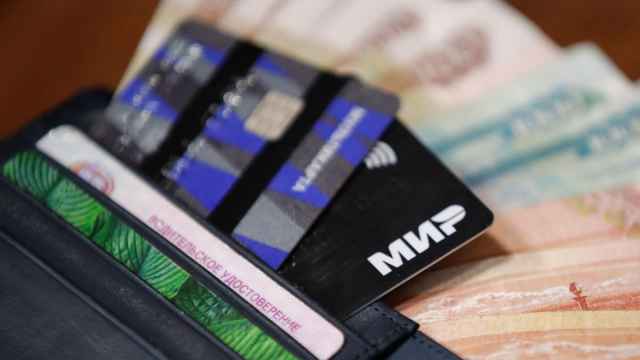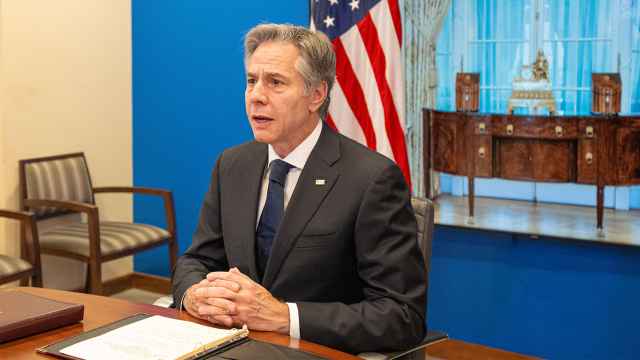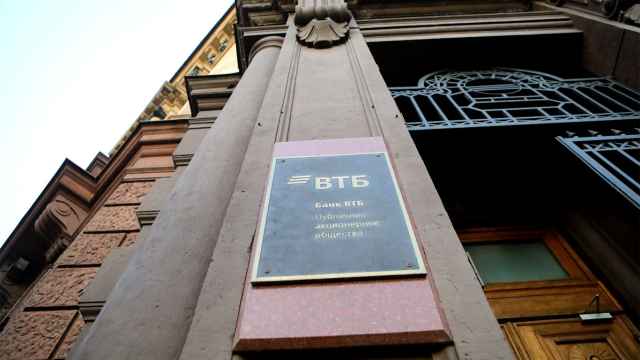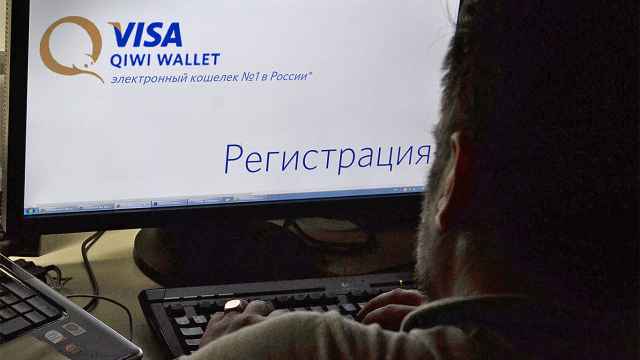Kyrgyzstan ended its acceptance of Russia’s Mir payment cards after its national payments operator’s Latvian software provider threatened to shut it down unless it did so, the Central Asian nation’s prime minister said Thursday.
Kyrgyzstan’s Interbank Processing Center (IPC) said it would stop servicing Mir bank cards from Friday to "minimize the risk of secondary sanctions" after the U.S. Treasury sanctioned Mir’s Russian operator.
Akylbek Japarov, the chairman of Kyrgyzstan’s cabinet of ministers, disclosed to Kyrgyz lawmakers that IPC’s Latvia-based software provider pressured Bishkek to cut ties with Mir, according to the news website Kaktus.media.
“IPC’s software is made by a Latvian company. It sent a letter saying that if we didn’t suspend work with the Mir card, they would disconnect IPC,” Japarov was quoted as saying.
“That’s why we temporarily suspended [Mir cards],” he explained.
Japarov hinted that Bishkek had “a number of mechanisms and measures” to restore Mir’s operations while avoiding sanctions but that “it’s impossible to announce them today.”
He said he planned to “try to explain the situation” to his U.S. counterparts when he visits Washington later in April.
“We can’t completely stop our trade and economic relations with Russia, it’s our strategic partner,” Japarov told Kyrgyz lawmakers.
“But unfortunately the companies that will come under sanctions will threaten our monetary system. We have to tread very carefully.”
Some Western officials suspect Kyrgyzstan of acting as a back door for Russia to obtain sanctioned goods.
Trade between Western countries and Russia’s regional partners like Kyrgyzstan and Armenia surged after the West imposed sanctions on Moscow in response to its 2022 invasion of Ukraine.
Mir (Russian for both “peace” and “world”) became an alternative for Russian travelers after their Visa and Mastercard cards stopped working abroad due to the Ukraine offensive.
The U.S. Treasury has since warned banks outside the United States that dealing with Mir would “risk supporting Russia’s efforts to evade U.S. sanctions.”
Armenia and Samsung’s mobile payment service have stopped servicing the card in response.
A Message from The Moscow Times:
Dear readers,
We are facing unprecedented challenges. Russia's Prosecutor General's Office has designated The Moscow Times as an "undesirable" organization, criminalizing our work and putting our staff at risk of prosecution. This follows our earlier unjust labeling as a "foreign agent."
These actions are direct attempts to silence independent journalism in Russia. The authorities claim our work "discredits the decisions of the Russian leadership." We see things differently: we strive to provide accurate, unbiased reporting on Russia.
We, the journalists of The Moscow Times, refuse to be silenced. But to continue our work, we need your help.
Your support, no matter how small, makes a world of difference. If you can, please support us monthly starting from just $2. It's quick to set up, and every contribution makes a significant impact.
By supporting The Moscow Times, you're defending open, independent journalism in the face of repression. Thank you for standing with us.
Remind me later.






